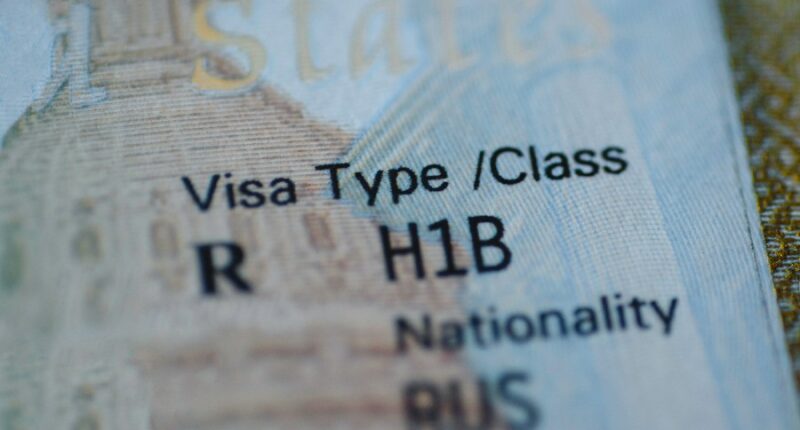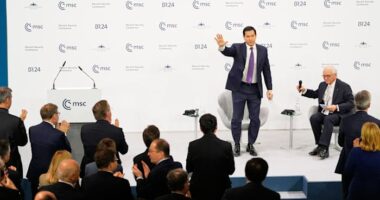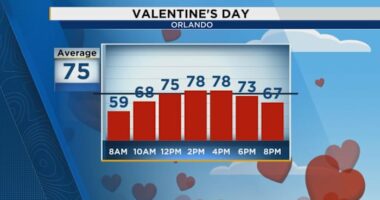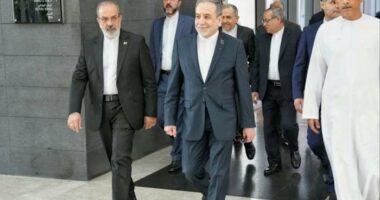Share this @internewscast.com

(NewsNation) — President Donald Trump signed a proclamation on Friday implementing a new $100,000 annual fee for H-1B visa applications, restructuring the skilled worker program, which the administration claims has replaced American workers.
Commerce Secretary Howard Lutnick said the fee will be $100,000 per year and added that “all big companies” are on board.
“No longer will you put trainees on an H-1B visa,” Lutnick mentioned during a call with reporters. “That it’s just not economically viable anymore. If you’re going to train people, it will be Americans. … If you have a very specialized engineer and want to bring them in … then you can pay the $100,000 annual fee for the H-1B visa.”
Trump also instructed the Department of Labor to adjust prevailing wage levels for the program to stop employers from reducing American worker salaries, Bloomberg reported.
This decision notably impacts the technology sector, which heavily depends on H-1B visas to fulfill specialized roles. In a White House fact sheet, the current system was described as a national security risk, arguing that American workers are being replaced by lower-paid foreign employees, Bloomberg reported.
“The dynamic is suppressing wages and disincentivizing Americans from choosing careers in STEM fields,” the White House stated.
Unclear is whether the new $100,000 fee will be in addition to existing costs, which currently involve a $215 lottery registration fee and $780 petition fee. The H-1B program distributes 85,000 visas annually through a lottery.
Trump also declared the introduction of a “gold card” visa with a prospective pathway to U.S. citizenship. The “Trump Gold Card” will be available for a processing fee and a $1 million contribution after a vetting process. For businesses, the cost will be $2 million. The “Trump Platinum Card” will have a $5 million contribution and permit foreigners to stay up to 270 days in the U.S. without incurring U.S. taxes on non-U.S. income. A $5 million gold card was announced in February to replace an existing investor visa—this is now the platinum card. Registration for the platinum card waitlist is open, but it still requires Congressional approval.
What are H-1B visas?
The H-1B visa, created in 1990, allows employers to hire foreign workers with specialized skills and bachelor’s degrees for temporary stays.
The visas are valid for three years and can be extended once for a total of six years. Recipients must hold a bachelor’s degree or higher in a field related to their specialty. H-1B holders can also apply for a green card while on the visa.
Immigration services cap the number of new H-1B visas at 85,000 per fiscal year. In 2023, 72% of approved petitions were for people born in India, 12% for those in China, and 71% went to men, according to the U.S. Department of Homeland Security.
Nearly 400,000 applications were approved in fiscal year 2024, most of which were to renew employment, according to Pew. Rejection rates of H-1B applications spiked during Trump’s first term but fell under former President Joe Biden.
Amazon has been the employer with the most H-1B workers approved each year since 2020, according to Pew. Many of the other top employers provide information technology and business services, including Cognizant Technology Solutions, Infosys, Tata Consultancy Services and Google.
What are critics saying about H-1B visas?
Critics across the political spectrum have argued the program undercuts American workers, while supporters say it fills critical workforce shortages in high-skilled positions.
Last year, Musk defended the H-1B program, writing on X: “The reason I’m in America along with so many critical people who built SpaceX, Tesla, and hundreds of other companies that made America strong is because of H1B.”
Supporters argue that the H-1B program helps the U.S. maintain a competitive edge, while critics claim that it undercuts wages for Americans.
Former presidential candidate Nikki Haley posted to X, “If the tech industry needs workers, invest in our education system. Invest in our American workforce. We must invest in Americans first before looking elsewhere.”
In response to critics, Musk proposed reforms to the H-1B program, including raising the minimum salary requirement to discourage low-cost labor abuse.
NewsNation’s Tom Dempsey and The Associated Press contributed to this report.













